Can Cats Eat Crab Meat? A Tasty Treat with Some Caution
- 1 Apr 2025 16:44
Crab meat might seem like a delicious and tempting treat to share with your feline friend, but is it safe for them to eat? 🦀 If you're wondering whether cats can eat crab meat, the answer is a bit more nuanced than a simple yes or no. Let's take a closer look at whether crab meat is suitable for your cat and what to keep in mind when offering it as a treat.
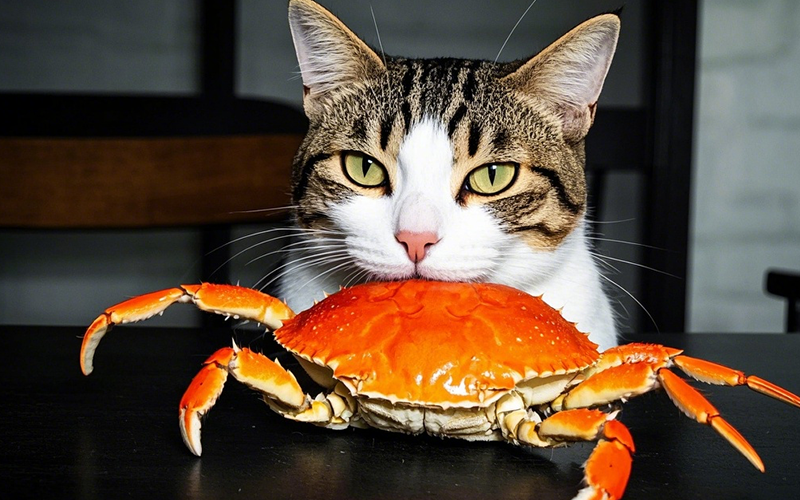
Is Crab Meat Safe for Cats?
Yes, cats can eat crab meat in moderation, but there are a few important things to consider. Crab meat is a good source of protein and provides certain nutrients that can benefit your cat, but it also comes with a few potential risks. Let’s break down the pros and cons of feeding your cat crab meat.
Benefits of Crab Meat for Cats
High-Quality Protein: Crab meat is a great source of protein, which is essential for your cat’s muscle development and overall health. Cats are obligate carnivores, so they require animal-based proteins to thrive. Crab meat can be a tasty and healthy addition to their diet when fed in moderation.
Low in Fat: Unlike some other meats, crab meat is relatively low in fat. This makes it a good option for cats that need to maintain a healthy weight or those prone to obesity. It provides a lean source of protein without the excess fat that could lead to weight gain.
Vitamins and Minerals: Crab meat contains essential vitamins and minerals such as vitamin B12, zinc, and selenium. These nutrients support your cat’s immune system, skin health, and energy levels.
Risks of Feeding Crab Meat to Cats
Choking Hazard and Shells: One of the biggest risks of feeding crab to your cat is the potential for choking on crab shells or sharp fragments. The shells are not digestible and can cause blockages in your cat’s digestive system. Always ensure that the crab meat is stripped of any shells before offering it to your cat.
High Sodium Content: Crab meat, especially when prepared or packaged for human consumption, can contain high levels of sodium. Too much salt is dangerous for cats and can lead to dehydration, kidney problems, and high blood pressure. If you want to offer crab meat to your cat, make sure it’s plain and unseasoned, with no added salt or spices.
Allergic Reactions: Some cats may have allergies to shellfish, including crab. If your cat has never had crab before, start by offering a small amount and watch for any signs of an allergic reaction, such as vomiting, diarrhea, or difficulty breathing. If you notice any of these symptoms, stop feeding crab to your cat and consult a pet health professional.
Toxins in Crab: Certain types of crab, particularly those that are undercooked or from unreliable sources, may contain toxins like heavy metals or bacteria that can cause food poisoning in your cat. Always make sure that any crab meat you give your cat is fully cooked and free from any harmful additives.
How to Safely Serve Crab Meat to Your Cat
If you want to treat your cat to some crab meat, here are some important tips for doing it safely:
Remove All Shells: Always ensure that the crab meat is free from any shells, as they pose a choking hazard and can damage your cat’s digestive system.
Serve in Moderation: Crab meat should only be an occasional treat, not a regular part of your cat’s diet. Too much crab can cause digestive upset, and the sodium content can add up quickly.
Avoid Seasoning: Never serve crab that has been seasoned with salt, butter, garlic, or other spices. These ingredients can be harmful to cats and may lead to digestive issues or toxicity.
Choose Cooked Crab: Always offer fully cooked crab meat to your cat. Raw crab can contain harmful bacteria and parasites that could lead to food poisoning or other health problems.
Symptoms of Crab Meat Consumption in Cats
If your cat has eaten crab meat and experiences any of the following symptoms, it could be a sign of an adverse reaction:
Vomiting or Diarrhea: These symptoms may indicate that your cat’s digestive system is upset from eating crab.
Lethargy: If your cat seems unusually tired or sluggish after eating crab, it could be a sign of a reaction to the food.
Itchy Skin or Swelling: These could be signs of an allergic reaction to the crab meat.
Excessive Thirst: If your cat has eaten a salty or seasoned crab, they might drink more water than usual due to dehydration.
What Should You Feed Your Cat Instead?
If you're looking for other tasty and safe treats for your cat, consider the following:
Cooked Meat: Cats love plain, cooked chicken, turkey, or fish. Just be sure the meat is free from seasoning and bones.
Commercial Cat Treats: There are many treats made specifically for cats that are safe and healthy, offering the right balance of nutrients.
Catnip: Catnip is a fun and safe treat that many cats enjoy. It can encourage play and exercise while being completely safe.
Fresh Cat Grass: Many cats enjoy nibbling on fresh cat grass, which helps with digestion and hairball control.
The Role of PettureX in Pet Health
If you’re ever unsure about whether a specific food or treat is safe for your cat, PettureX is a great tool to have. 🐾 PettureX provides 24-hour online consultation, helping you make the best dietary decisions for your cat. It also offers pet image recognition, so you can get instant advice on whether something is safe for your feline friend.
Conclusion
So, can cats eat crab meat? The answer is yes, but with caution. Crab meat can be a safe and healthy treat for your cat when served in moderation and with care. Always remove the shells, avoid seasoning, and make sure the crab is fully cooked. While crab meat offers some nutritional benefits, it should only be an occasional treat due to the potential risks associated with sodium, allergies, and toxins.
For reliable advice on your cat’s diet and health, PettureX is an excellent resource to ensure your feline stays happy and healthy. 🐱💚
Remember, while crab meat can be a fun treat for your cat, it should never replace their regular balanced diet, and always ensure it's safe and free from harmful ingredients!
Related
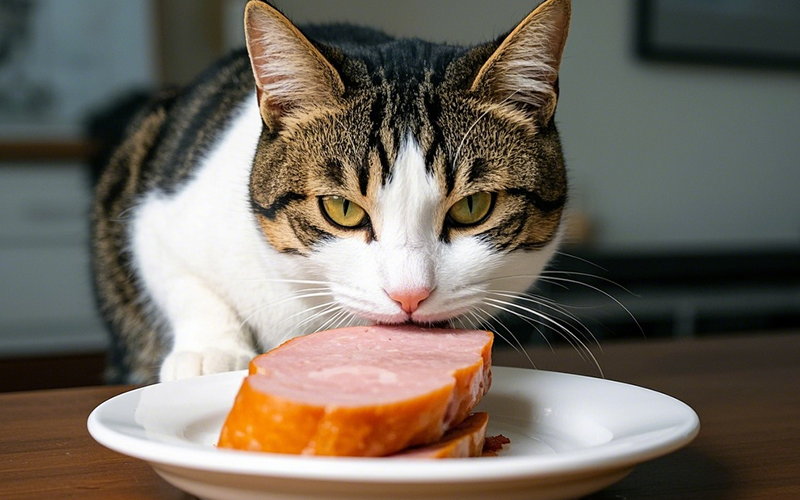
Can Cats Eat Deli Ham? A Meaty Treat That Comes with Caution
- 2 May 2025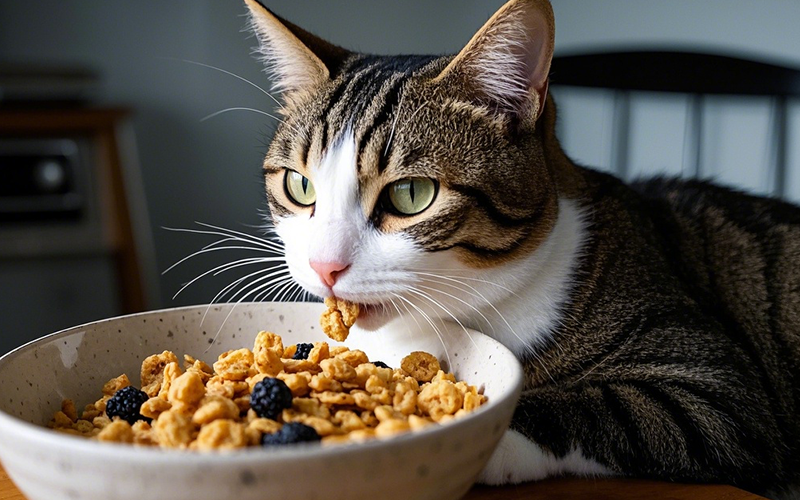
Can Cats Eat Granola? Is This Crunchy Snack Safe for Your Feline Friend?
- 2 Apr 2025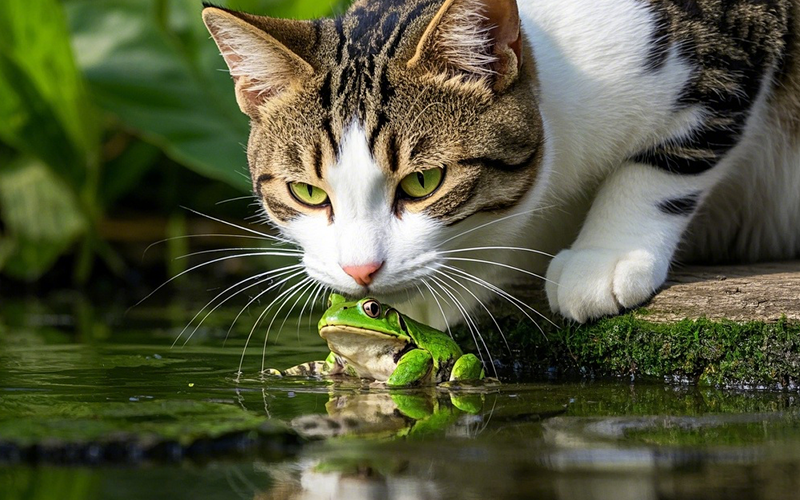
Can Cats Eat Frogs? What You Should Know About Frogs and Your Feline Friend
- 2 Apr 2025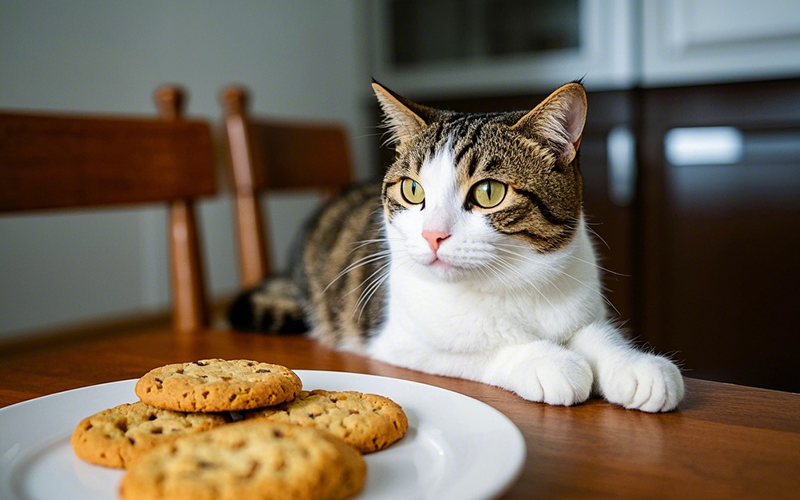
Can Cats Eat Graham Crackers? A Sweet Snack or a Risky Treat for Your Feline Friend?
- 2 Apr 2025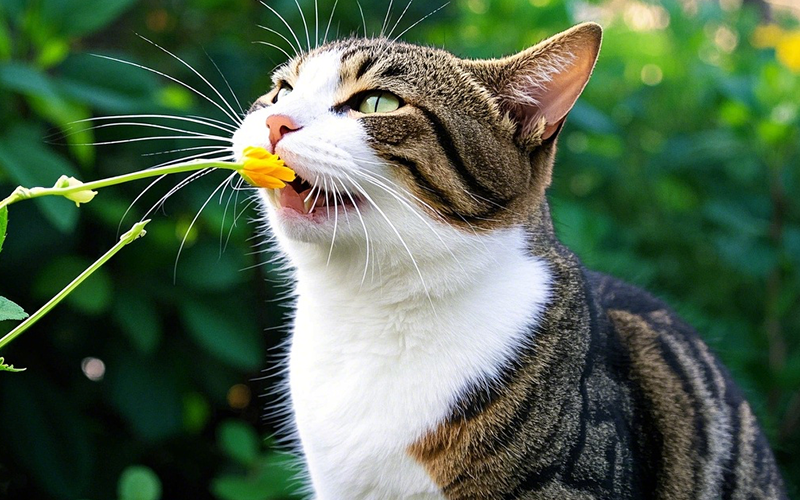
Can Cats Eat Flowers? What You Should Know About Floral Treats for Your Feline Friend
- 2 Apr 2025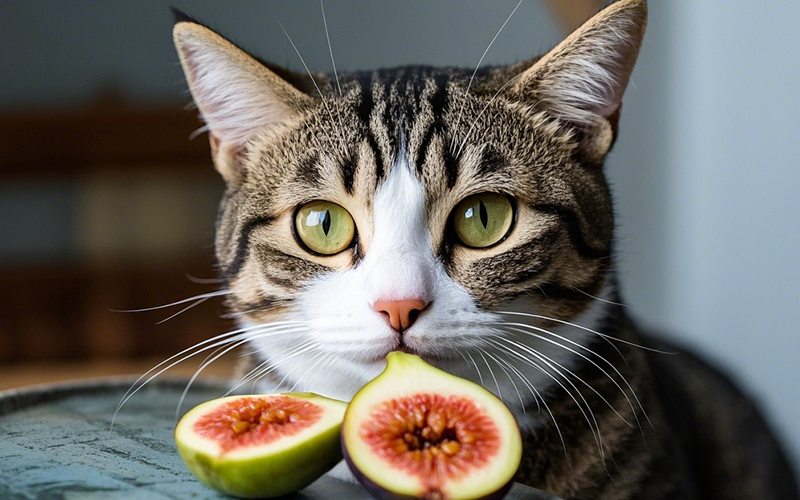
Can Cats Eat Figs? What You Need to Know Before Sharing This Fruit
- 2 Apr 2025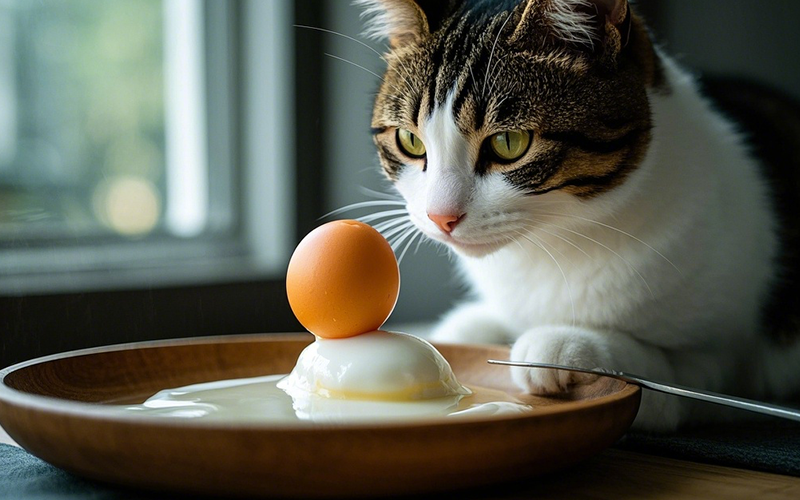
Can Cats Eat Egg Whites? The Facts You Need to Know
- 2 Apr 2025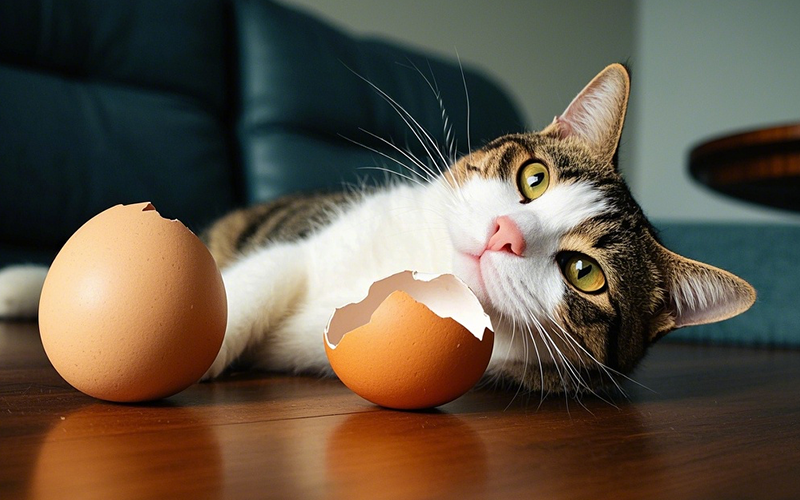
Can Cats Eat Egg Shells? The Benefits and Risks of This Crunchy Treat
- 2 Apr 2025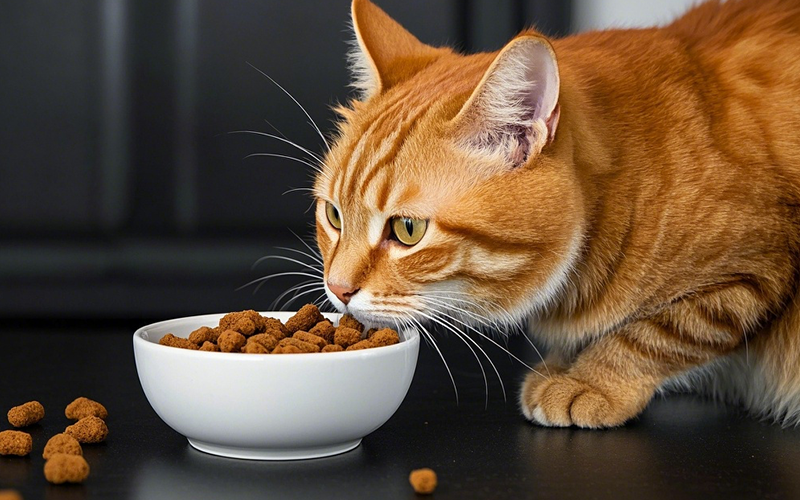
Can Cats Eat Dry Dog Food? Why It’s Not a Good Idea
- 2 Apr 2025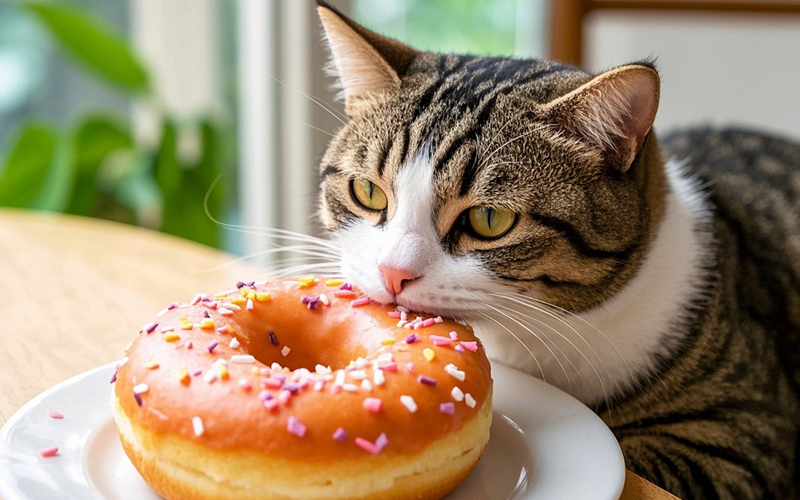
Can Cats Eat Donuts? A Sweet Treat Best Avoided
- 2 Apr 2025
